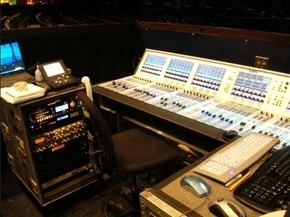
When going to a concert, everyone attending expects a great show and, in most cases, have paid good money for the experience. In order to make the concert a memorable experience, there is a lot of work that goes on behind the scenes. If it is successful, the attendees will remember it for years. If it is not, they will question why they wasted their time coming and why the artist even bothered to show up.
Sound
The sound is what makes or breaks the concert. After all, a concert by nature involves sounds from a variety of sources coming together to make music. The sound engineer, while not seen onstage, plays a critical role in making this happen. He or she must be familiar with how to dial in the different frequencies to make each instrument come through clearly. Feedback must also be taken into consideration. The more mics that are active at one time, the more likely there will be feedback. Should it occur, the sound engineer must be able to identify the source in order to make the proper adjustments to eliminate it.
Electrical
There are a lot of wires running from place to place at a concert. Power must be run to the instruments and amplifiers on stage as well as to the sound system and lighting. This becomes even more of a challenge at an outdoor concert because the venue is typically not one whose main function is to host concerts. Calculations must be done to figure how much amperage will be drawn and everything must be wired accordingly. Individuals who are looking for a career in engineering can find more information here, or in other places. Not only is electrical engineering work required for the sound, but the stage and house lighting are important as well. Without the right electrical distribution, the only thing the performers and audience can do is sit in the dark.
Special Effects
Aside from the sound and lighting that are vital for good concerts, many acts also include a variety of special effects. For most of these, engineering calculations are required to make them work as they should. A prime example of this is pyrotechnics, especially in an indoor concert. If the fireworks go off too soon, people on stage or in the audience are likely to be injured. If they go off too late, they will hit the ceiling. Needless to say, everything must be timed precisely.
While it is the band that gets the attention from the members of the audience, the work that goes on behind the scenes is what makes the members of the main act look good. It is a team effort that includes a lot of engineering work.
